Behind the dossier: How Christopher Steele penned his reports -- and the fallout from his unmasking
The ex-spy went into hiding after he was identified as the dossier's author.
In early June of 2016, when Christopher Steele arrived for lunch at London's Heathrow International Airport, he could not have known that this meeting with an old friend would lead him down the path to international notoriety.

ABC News Special
George Stephanopoulos sits down with former MI6 spy Christopher Steele for his first interview since the publication of intelligence reports now known as the "Steele dossier."
Steele, a retired British spy who was duty-bound to maintain his cover, was unaccustomed to public attention. That day he would meet Glenn Simpson, a former journalist and founder of the corporate intelligence firm Fusion GPS. Simpson had a proposal: He wanted to bring Steele's source network and Russia expertise to a high-stakes investigation into the Republican nominee for president, Donald Trump.
Steele said he had never investigated an American political candidate before. But he was immediately intrigued.
"We realized it was potentially quite a big project and potentially quite a controversial project," Steele said in an exclusive interview with ABC News' George Stephanopoulos. "Normally, when you do these things, you might find some business deals that might be questionable, et cetera. But you wouldn't really, and we certainly didn't, expect to find what we did."
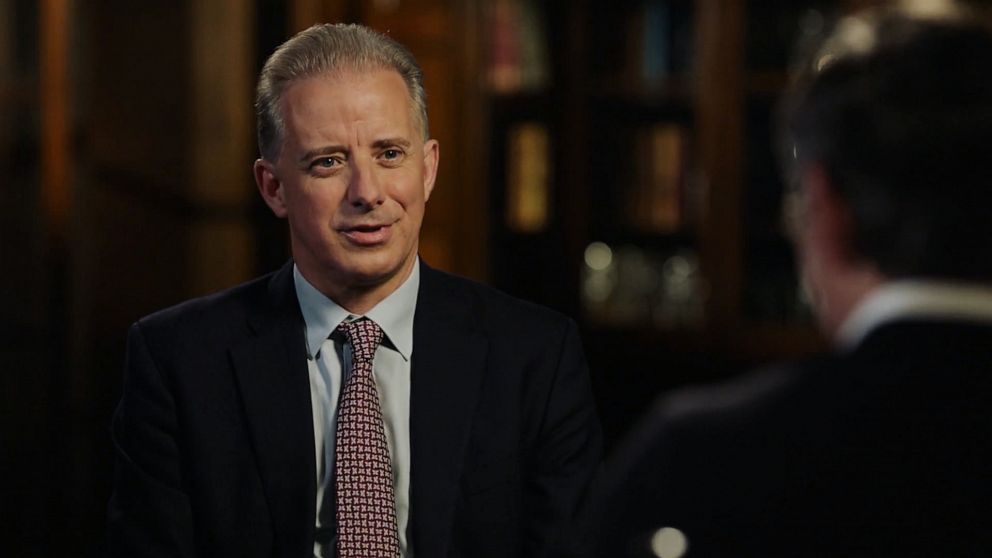
Over the course of the next six months, Steele would file 17 memos to Fusion GPS and its client, a law firm representing the Democratic National Committee and Hillary Clinton's presidential campaign. The salacious claims in the so-called "Steele dossier" -- involving sex, spies, and scandal -- are well known by now. But details of how Steele gathered the intelligence, and the personal toll of its fallout, have remained shrouded.
"It's not at all usual for me to be in the public eye, but we've been there for five years," Steele said. "Because the vitriol and the things that people have said about us and our motivations and our work are so far-fetched and untrue, I thought it was important to come and set the record straight."
Out of the Shadows: The Man Behind the Steele Dossier" is available Monday, October 18, on Hulu.
The 'dossier' takes shape
After meeting with Simpson, Steele and his business partner at Orbis Business Intelligence, Christopher Burrows, discussed the risks associated with taking on such a potentially sensitive project.
"There's always a debate on every project that we take on," said Steele. "Some of them are clear-cut, fairly standard projects which don't require a great deal of debate. Others, we decide, are beyond the pale because of the nature of the client. This was in the middle."
Ultimately the two agreed to accept the work. That Donald Trump was involved "didn't play into" their decision, Steele said. It was Russia's growing interest in meddling in Western politics that intrigued him.
Steele had spent decades studying Russia and its enigmatic leader, Vladimir Putin. As an officer with MI6, the British intelligence service, he watched the authoritarian leader rise through the ranks. Steele said he believes the two may have even crossed paths.
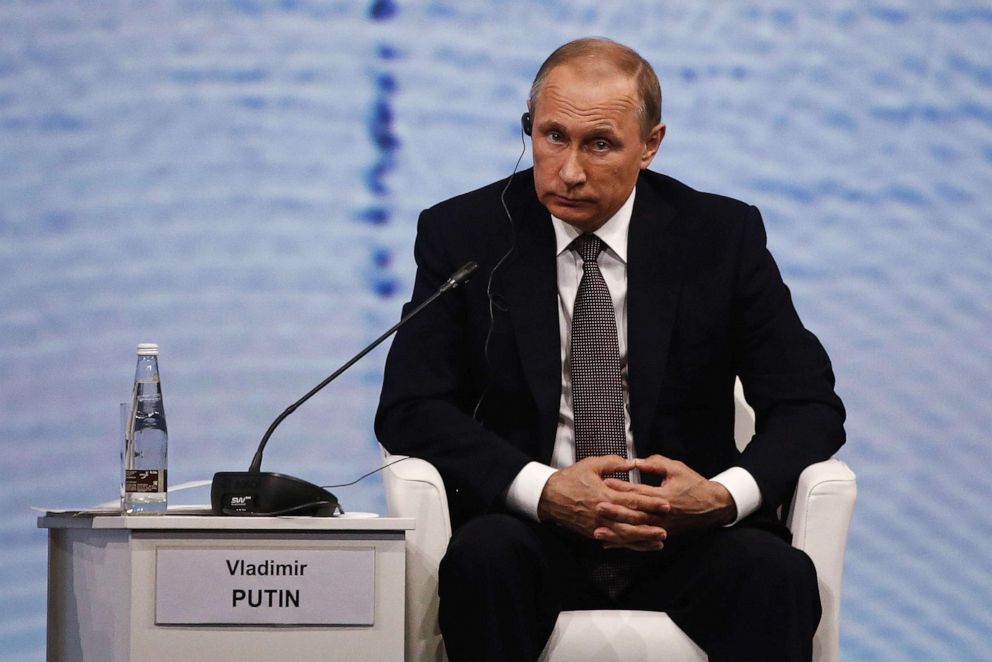
"There is a possibility that in 1992, when I took a delegation of senior officials to St. Petersburg, that we actually met Vladimir Putin," Steele said. "[Putin] was the head of the St. Petersburg Foreign Affairs department at the time ... he may have my business card."
Steele had previously probed Russian interference in various European elections as part of an investigation called Project Charlemagne.
"We were, at the end of the day, looking at Russia as we always did; similar sources that we'd used before," Steele said.
One of those sources, whom Steele later described to the FBI as a "prolific asset," was outed in 2020 after Republican U.S. Sen. Lindsey Graham released the transcript of an FBI interview with the source, who was later identified as a Washington-based think tank analyst. Steele refused to acknowledge the man as his primary "collector." A collector, Steele explained, is "somebody who obviously works for us directly, is paid for us directly -- doesn't necessarily have direct access to information but knows people who do."
Within weeks of receiving his "tasking" from Steele, the collector had traveled to Russia and returned to London. He later told the FBI that he never kept written or electronic notes, as doing so posed a security risk. His oral briefing with Steele at Orbis' office would later make up the contours of "Report 080" -- the first entry of the dossier, which leveled stunning accusations about a conspiracy between the Trump campaign and the Kremlin.
"I was surprised and shocked," Steele said of the findings. "But having said that, some of the things that we were being told were clearly aspects of well-known Russian M.O., modus operandi. And therefore, in a sense, there was a logic and a cultural recognition of what was going on."
Steele transmitted his first report to Simpson via FedEx on June 24, 2016 -- his 52nd birthday. Despite warnings from his wife and his business partner to omit it, he opted to include the most salacious claim from the collector -- an allegation that the Russians had obtained a compromising video of Trump at the Ritz-Carlton Hotel in Moscow in 2013, later colloquially referred to as the "pee tape."

"I would have left it out ... it sort of denigrates from the overall message," Burrows told Stephanopoulos. "The golden rule for 'golden showers' ... you just don't talk about sex in reports."
But Steele defended his decision to include the salacious material.
"I would quite like not to have to talk about sex in reports," Steele said. "But when you have an organization like the [Russian intelligence agency] FSB, where that is part of their toolkit, if you like, their modus operandi, you cannot ignore that as a factor in these situations."
Trump has specifically and repeatedly denied that he engaged in this specific act. At a press conference the day after BuzzFeed published Steele's dossier, Trump told reporters that he was "a germaphobe" and that he warned associates in 2013 that there would be "cameras all over the place" in Moscow. As recently as last week, Trump reportedly told donors at a private speech that he is "not into golden showers."
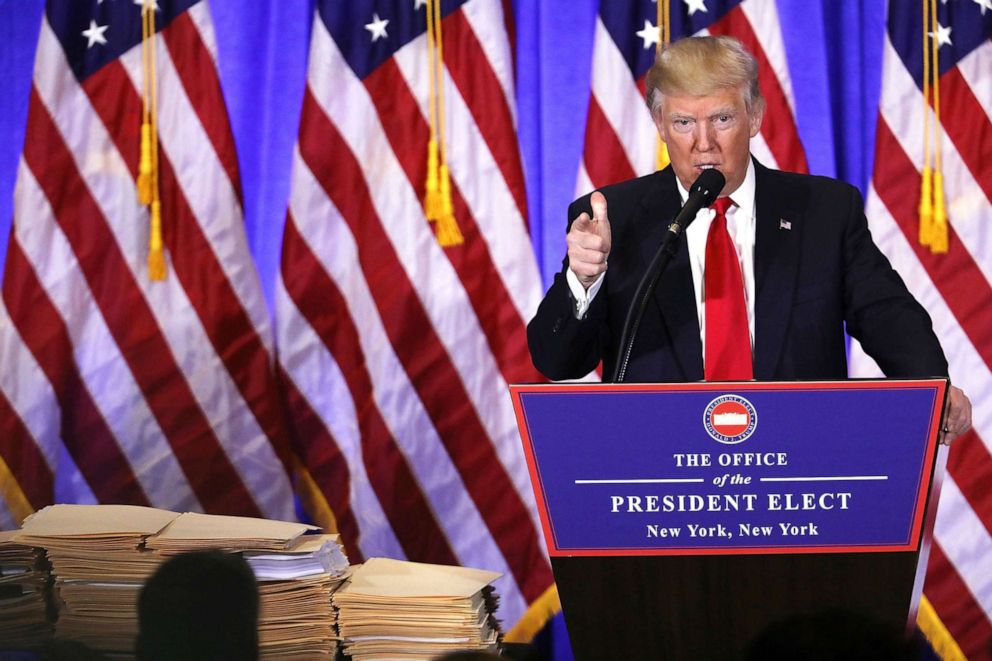
Steele continued meeting with his primary collector and ultimately penned 16 additional reports for Fusion GPS until after Trump won the presidency. But shortly after submitting "Report 080," Steele said he "felt duty-bound to do two things."
"One was to try and run it down on a future collection visit, if you like," he said. "And the second was, we immediately decided that we had to report it into the FBI."
Frustration mounts
In early July 2016, according to Steele, he called Mike Gaeta, an FBI agent stationed in Rome and Steele's long-time "interlocutor" with the American law enforcement agency. Steele said he had important information to share and invited Gaeta to his London office.
By 2016, Steele was well-known within the FBI. Since leaving government, he and Burrows had contributed information to multiple FBI investigations as both paid and unpaid informants. When the two left MI6 in 2009, Steele said they resolved to report any information with national security implications to government agencies.
"This was our duty and responsibility to bring this to the attention of the relevant authorities," Steele said. "We were therefore obliged, both as a client and from a national security perspective, to alert them to what we were finding."
After briefing Gaeta on his findings, Steele waited for action. As summer turned to fall and the polls tightened in the U.S., he grew increasingly concerned that his information had been mishandled. Unbeknownst to Steele at the time, the FBI had already undertaken its own investigation into the Trump campaign and possible collusion with Russia -- a probe dubbed Crossfire Hurricane.
"The records show that the reporting that we then passed to [Gaeta] sat in a cupboard ... for a long time before it actually got to where it needed to reach, which was the Crossfire Hurricane team," Steele said.
"As we're getting closer to the election, are you getting frustrated with the FBI?" Stephanopoulos asked.
"A little bit," Steele said.
Fearing that his report to the FBI had fallen on deaf ears, Steele said that Simpson, the Fusion GPS founder, organized a meeting for Steele with reporters in Washington. It was another point of contention between Steele and Burrows, who warned that doing so would threaten to expose him as the source of information.
Steele said Simpson wanted the meeting to "stimulate [the reporters] to look into this themselves" -- not for them to report on his allegations. Steele later lamented that his dossier was made public. But critics say his decision to meet with reporters contradicts that sentiment.
"If he didn't want the details in the dossier to be public, why the hell was he collecting information for the dossier? And why was he meeting with reporters to tell them about it?" asked Barry Meier, the author of "Spooked: The Trump Dossier, Black Cube, and the Rise of Private Spies."
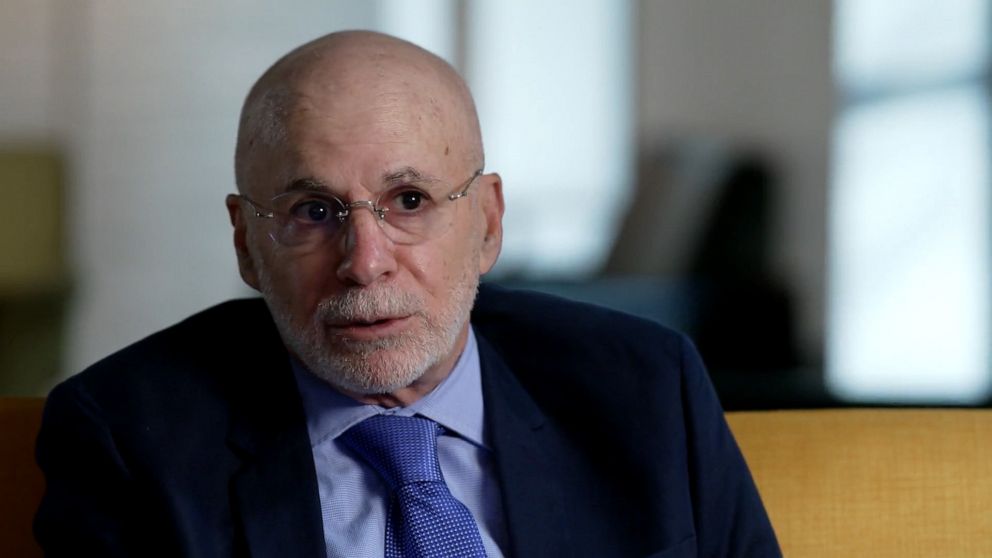
Steele said his frustration with the FBI grew in October 2016 after he saw then-FBI Director James Comey announce the agency was reopening its investigation into whether Hillary Clinton had exposed classified emails on a private server.
Steele said his FBI contacts had insisted to him that "they can't be seen to put their finger on the scales publicly that would advantage or disadvantage a candidate." Now that appeared to him to have changed.
"You thought there was a double standard at work?" Stephanopoulos asked.
"There was," Steele replied.
Steele said Comey's announcement was a trigger. At the behest of Simpson and Fusion GPS, Steele went back to the press and told his story to David Corn, a reporter for Mother Jones. The headline landed on October 31: "A Veteran Spy Has Given the FBI Information Alleging a Russian Operation to Cultivate Donald Trump."
The FBI took notice of the article and confronted Steele, who acknowledged his role as the source.
"If you become a confidential informant for the FBI, there's certain rules that you have to follow," said Sarah Isgur, a former Justice Department spokeswoman during the Trump administration who is now an ABC News contributor. "And one of them is, you don't talk to the media about what you're talking to the FBI about."
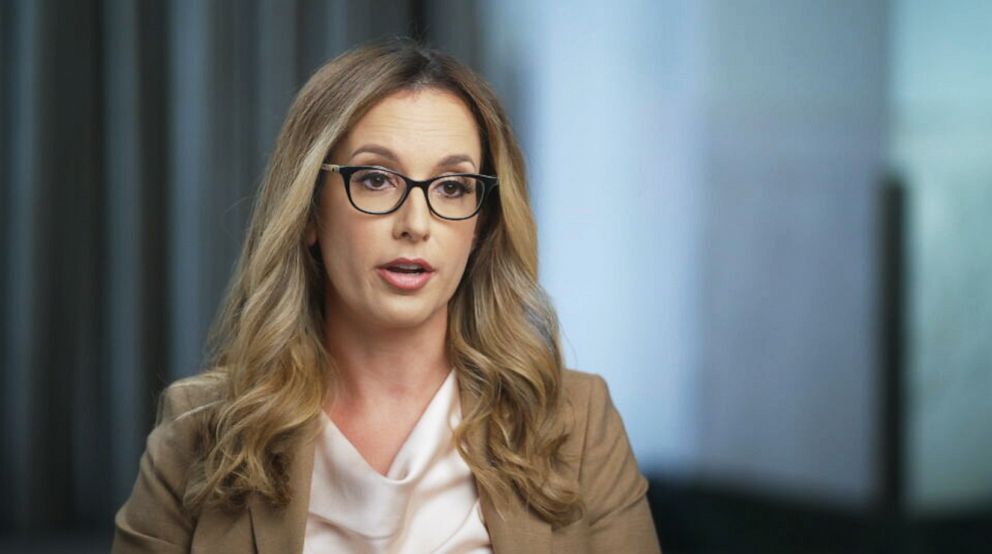
The FBI terminated its formal relationship with Steele, who now feels it was a mistake to do the interview with Mother Jones.
"I regret having done so because ... ultimately, that led to a whole series of events that bring me to this chair today," Steele said.
In the news, into hiding
After Trump's electoral triumph in early November, Steele continued filing reports to Fusion GPS. By then, he had shared the contents of his reporting with others outside the FBI and Justice Department, including multiple State Department officials and, notably, an aide to then-Sen. John McCain.
The dossier was quickly becoming Washington's worst kept secret. Then, on January 10, the news broke.
"We were in our kitchen, and it suddenly came on CNN that they'd got this great scoop," Steele said. "It sounded very familiar."
American news outlets were reporting that the intelligence chiefs had briefed President Barack Obama and President-elect Trump on Russia's election meddling -- and included some of the details from Steele's dossier. Steele's name hadn't yet been reported, but he assumed it was only a matter of time.
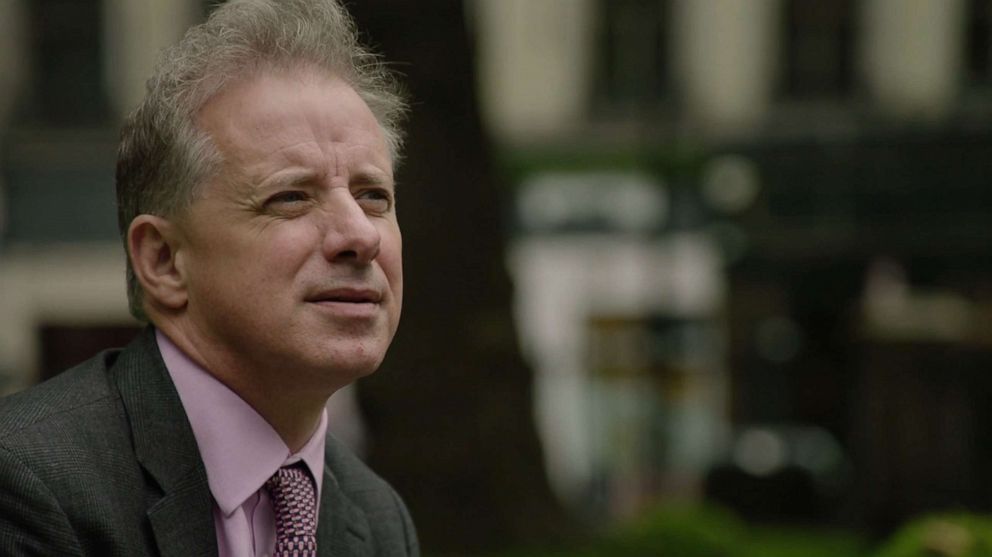
Later that day, BuzzFeed News published Steele's dossier in its entirety. On January 11, The Wall Street Journal named Steele as the dossier's author.
"It's quite a headline to read, I imagine," Stephanopoulos said.
"It certainly is, when you've spent your life in the shadows, behind the scenes," said Steele. "But it did seem to us inevitable that this would happen. And we had already left home by the time that article came out."
Steele and his family sought refuge at his sister's flat in London, then bounced from home to home. He grew a beard. Initially, his family thought he was overreacting.
"I didn't understand it enough to be frightened at the time," said Steele's stepdaughter, Lucy Perry-Jones. "But the frightening stuff came later on ... to see the president of the U.S. tweeting about him is just bizarre."
As news of the dossier spread, Trump took aim at Steele, calling him a "failed spy" and labeling his dossier a "hoax." Steele said Trump's attacks were like "an out of body experience" at first, but "like anything else in life, you get used to it."
Trump "did call for you to be extradited back to the U.S.," Stephanopoulos said.
"He also called me a liar, spelled L-I-E-R, George," Steele replied. "So, you know, these things have to be taken, I think, with a pinch of salt."
Nevertheless, said Steele, spending five years in Trump's crosshairs has irrevocably changed the course of his life.
"It made me appreciate what impact on my family and my children my professional work could have," Steele said. "And that that impact wasn't always positive."
ABC News' Julia Macfarlane contributed to this report.




